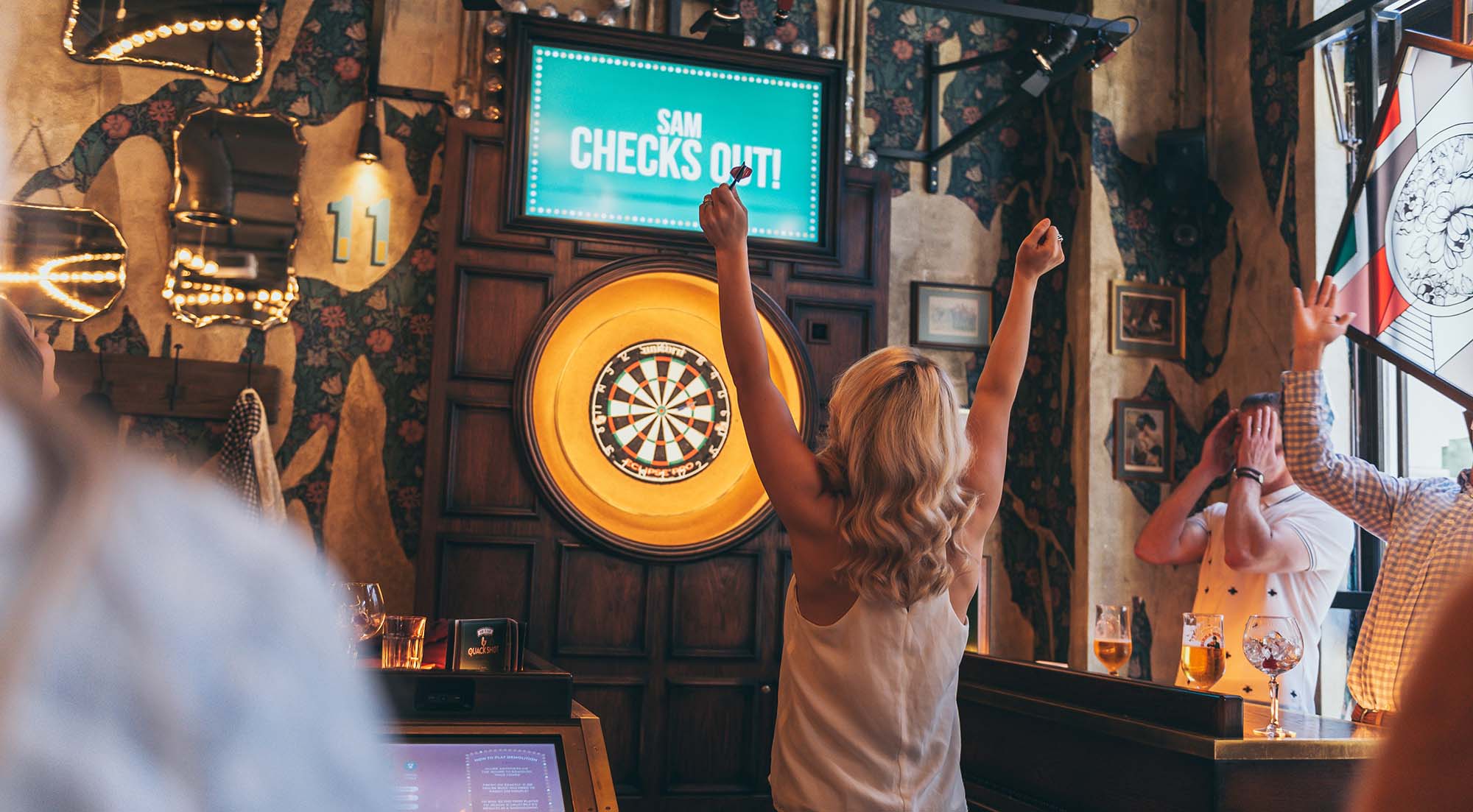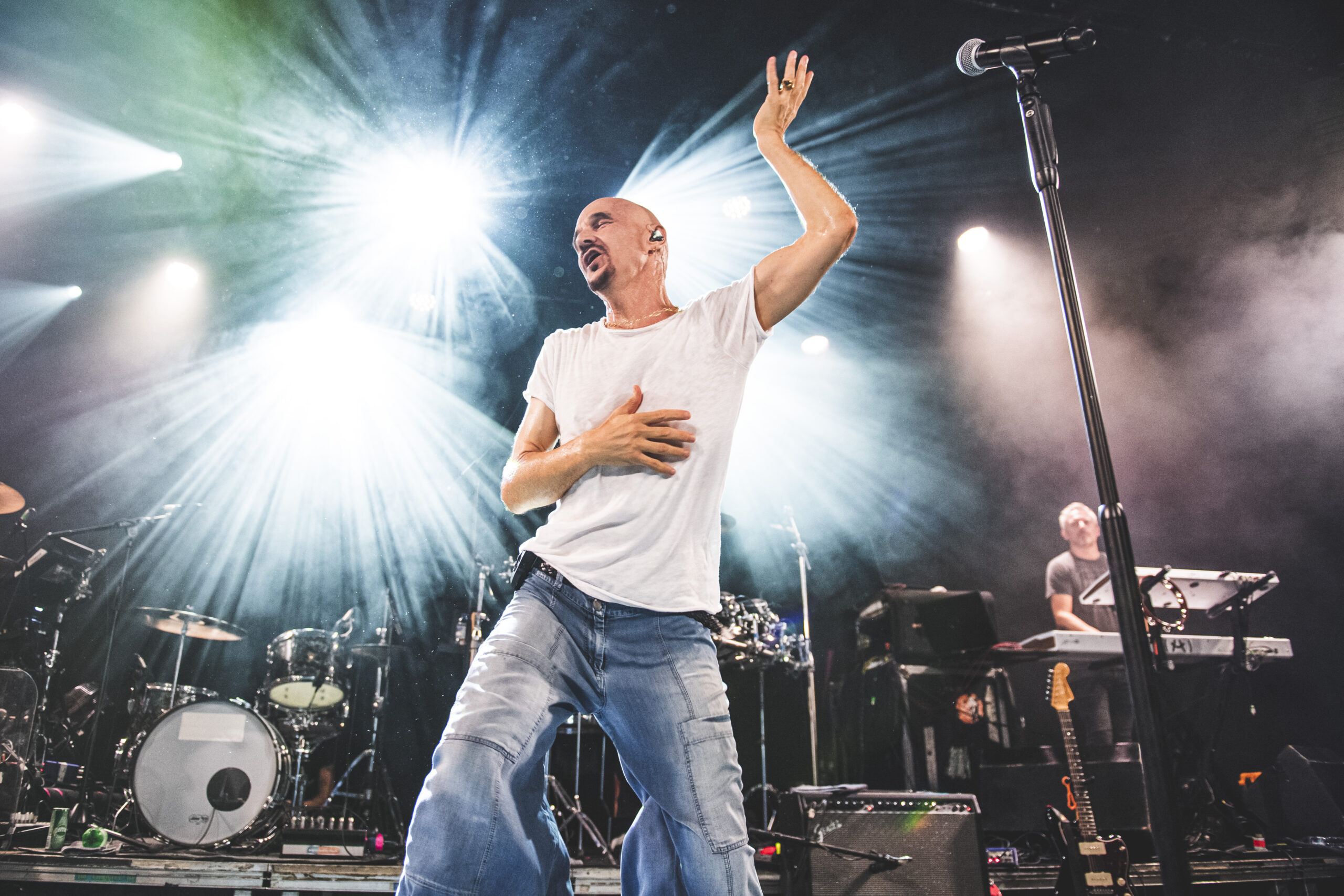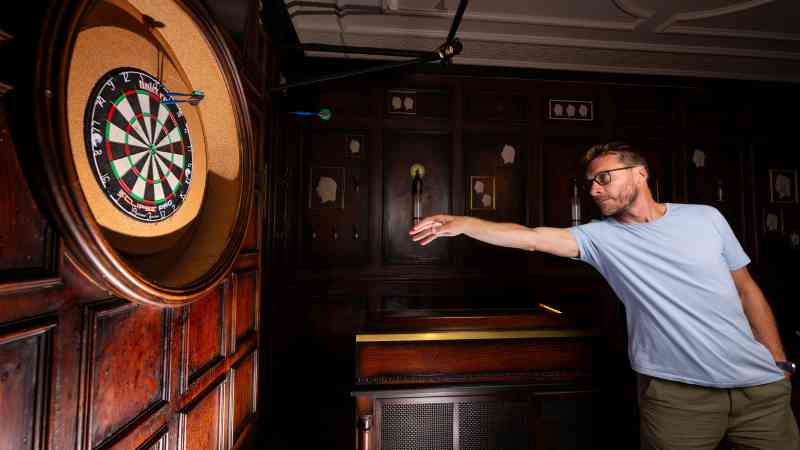If you’ve driven a fire engine round the world, how hard can it be to start a firm?
Red Engine might seem like an odd name for a darts and shuffleboard bar operator. But Steve Moore named his business after a transformative experience that helped him set up in business: spending nine months driving a fire engine around the world.
Having opened its first venue in 2015, Red Engine now has 29 venues: 22 darts-themed bars under the Flight Club brand, and seven under the Electric Shuffle name, featuring the table game shuffleboard.
But why was Moore on a global tour with a fire truck? He undertook the mission in 2010 to raise money for lung cancer charities after his firefighter father, Garth, died from the disease in the previous year, aged 63.
Moore, now 47, grew up in Wimborne Minster, Dorset, in a family of public servants. His uncles were in the Royal Air Force, his mother was an NHS nurse, and his brother is a police officer. He jokes that he “completely let the family down” when he chose to study economics, take a job at investment bank Morgan Stanley and then move into futures trading.
His high-flying City career was not meant to last, however. “I couldn’t handle the corporate world at all — I was such a bad fit,” he said. The tipping point came when his father was diagnosed in 2008 and Moore spent days accompanying him to chemotherapy. It was at this point — as a fan of actor Ewan McGregor’s hit TV documentary Long Way Round, in which the Star Wars star attempted the journey from London to New York by motorbike — that he found the inspiration for his global fundraising expedition.
“I thought: let’s get a fire engine and see how far we can go. My dad said it was a ridiculous idea — don’t do it. I said I would do it, and then he died.”
After months spent preparing, including SAS training, the Follow that Fire Engine team assembled by Moore set off in mid-2010 and drove 30,000 miles across 32 countries and five continents. They traversed deserts, and survived a near-death crash. The initiative raised more than £100,000 for lung cancer and firefighting charities, and won Moore a Guinness World Record for the longest journey ever made by fire engine.

“It was near-on impossible, and you had to learn everything. I became a truck mechanic and we learnt Russian, survival skills, all that,” he said. “The most beautiful moment, I think, was driving across Mongolia for six weeks, never seeing a road.”
On his return to London, Moore resumed his City trading role, but again found himself unable to settle, partly because this time he “was in a completely different place” mentally after his world tour. Then, one day in 2012, sitting in a pub in Devon with his friend and soon-to-be business co-founder Paul Barham, now 48, he spotted a group of eight young people having “a lovely little game of darts over a chalkboard”. It triggered the idea for Flight Club.
The concept is darts games “reinvented for the 21st century”, offered alongside food and cocktails in pub and fairground-inspired venues. A proprietary technology tracks darts as they are thrown, scores them, and instantly displays results and replays on a screen.
Red Engine’s Electric Shuffle spin-off, launched in 2019, is a similar concept but for shuffleboard, a game in which players shuffle pucks along a table aiming at a marked scoring area.
Getting started in 2012, Moore and Barham set about creating a prototype for the high-tech darts equipment. They did not anticipate that the process would take nearly three years. To save money, Barham moved into the home in Wimbledon, southwest London, that Moore shared with his wife, Amy, and slept on the sofa.
The co-founders spent days tinkering in the garden shed and brought in Jason Dale, an ex-Nasa astrophysicist and now the company’s chief technology officer, to develop the tech. Despite the arrival of young daughters for the Moores, their living room served as a product testing site.
“It really was brutally hard to have two babies and my co-founder living with us. Nothing was working — we’d taken on a technology that had never existed before, in a sector, ‘competitive socialising’, that didn’t exist … and we didn’t have any money,” Moore recalled. “I was in a lot of debt because of self-funding the fire engine and I had binned a good job to start a business,” he said, adding that Amy was “brilliant” during that time.
He coats everything in humour, but said the situation took its toll. “I used to work 20 hours a day. I was so sick, so anxious, I was violently ill from stress. But I wouldn’t change it for the world.”
When their prototype was ready, the founders asked friends and family members to invest — 48 said yes and collectively put in £1.2 million to fund the opening of the first Flight Club in Shoreditch, east London. Moore suspects they were encouraged to invest by his track record for following through on his promises. “Because we’d pulled the fire engine thing off and [the business] looked like a pretty solid idea at this point, it worked.”
The Shoreditch venture went well, and soon several former volunteers had been brought on board as employees at Flight Club, covering roles from marketing to legal work. Within two years, the team launched a second, much larger venue in Victoria, central London, which turbocharged the company.
Moore said Flight Club’s rapid take-off was due in part to launching at a time when there were few inventive bar concepts. “We were trying to do the opposite to All Bar One and Pitcher & Piano … [which are] just events spaces with a bunch of tables put together,” he said. “We wanted a sense of community, groups of friends. I think we just tapped into something.”
Today, Red Engine employs 130 people and has 29 venues worldwide. Its backers include Manjit Dale, the founder of private equity firm TDR Capital; Alex Chesterman, who started the online car retailer Cazoo; and PR guru Matthew Freud. Moore retains a 5 per cent stake.
Flight Club’s sales reached £68.6 million in the year to December 31, 2023, producing an operating profit of £5.1 million. At Electric Shuffle, the figures were, respectively, £10.7 million and £850,00. The group said it expects overall revenues of £125 million in the year to December 2024, including sales at its US and Australian franchises. It is now using a £60 million bank facility to fuel further expansion across Europe, and has just opened a 10,000 sq ft flagship outlet in New York.
In recent years, Red Engine has faced competition from other “competitive socialising” options — including mini-golf and axe throwing — as well as prolonged closures during the pandemic, and a cost of living crisis. Despite these hurdles, Flight Club has continued to grow — something that Moore puts down to a consumer desire to “go to something really good once a week”. He said: “Occasional spend means quality. A lot of the mid-market has been really knocked out, but if you’re good, you’re doing well.”
Despite his success so far, he remembers how it all started and a picture of his father hangs by the entrance to ever Flight Club venue. “I always tap his face when I walk in.”
The entrepreneur said he’s in it for the long haul. “This isn’t about selling in ten years or stopping at 50 venues … Our vision is about spreading ridiculous joy. I’ll be doing this on my deathbed … unless I get kicked out.”

High Five
My hero … My spiritual hero is Tim Booth, frontman in the indie rock band James.My best decision … It has to be having the balls to ask the chief fire officer, my dad’s old boss, to please give me a fire engine. Without that engine, there would be no Flight Club.My worst decision … was opening Flight Club Victoria two years into our journey. We did it on a whim because we were facing such huge demand, and it catapulted us into the stratosphere. However, that doesn’t make it right — it could have ruined us as the venue was so big and expensive.Funniest moment … We were launching a game called Quack Shot for Flight Club, and as part of the fun, I wore a duck suit for about 12 hours. All the guests just looked at us thinking, “What the hell?”Best business tip … If you’re in the hospitality sector, put yourself in the shoes of the guest.




Post Comment